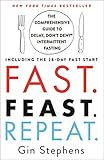In part 1 and 2 of this series, we saw how John developed the diseases associated with the metabolic syndrome and how John was able to regain his health with fasting and exercise. Part 2 ended with the question, “What organ system can make John live the longest?”
Internal Organs Move Involuntarily. They function automatically.
All of the internal organs of the body do their job automatically. The nervous system, the cardiovascular system, gastrointestinal system, renal, and endocrine. All of their functions are controlled by the autonomic nervous system, cytokines, and hormones. We don’t have to will them to work. They function on their own.
No one can directly influence the function of the internal organs. It is hard to make your heart beat better by will power. You can not make your blood pressure lower just by thinking. You may decrease the rate of your breathing, but you cannot make your lungs get more oxygen. You can not make your intestines move just by thinking about it. You can’t make your kidneys produce reabsorb or excrete more salt. They all function automatically without human thought. But there is an organ system that can influence all of them to get better. And that is the musculoskeletal system.
The Muscles Move Voluntarily
The difference between the musculoskeletal system and the rest of the body organs is that it can be moved voluntarily. You can command your muscles by willing it to contract. You want to stand up from sitting, you contract the muscles of the legs, thighs, and buttocks. You want to hold something, you flex your fingers around that object. The muscles contract whenever you want it to move at the time, speed, and frequency you want it to do act. And because of that, you can will it to exercise.
Multiple benefits happen to the Internal Organs when you exercise.
Muscle contraction uses up the stored fuel, glycogen in your muscles to make room for more glucose to enter the muscle fibers, thus making the muscles more insulin sensitive. Increasing the sensitivity of the muscle fibers to insulin is important because insulin resistance is the cornerstone of the Metabolic Syndrome. Know more about the Metabolic Syndrome here. To understand what diseases are associated with Metabolic Syndrome, read this multi-part series.
Resistance exercise also increases bone density, decreases blood pressure, improves the lipid profile (lowers triglycerides and high HDL), reduces ischemic heart disease and stroke risk, improves cardiac function, enhances mental health and reverses aging in skeletal muscles. To see a summary of the benefits of exercise to the body, refer to this.
Resistance training counters sarcopenia which is the decrease in muscle size that comes with aging secondary to sedentary lifestyle and shortening of the telomeres.
Sarcopenia is the bane of aging because it translates to muscle weakness, bad posture (stooping) and loss of balance.
Resistance training will increase muscular strength from which balance, agility, speed, and power come from. These are all necessary to prevent falls that can lead to hip fractures.
There is no other organ system in the body that you can voluntarily move that will positively affect the internal organs.
Resistance Exercise Lowers Your Chance of Dying From Any Cause
Multiple studies like this published in the Journal of the American Heart Association showed a decrease in the all-cause mortality of women who exercise. This study from The University of South Carolina Scholar Commons showed a reduction in risk of dying from all-cause mortality among men and women. Even the British Medical Journal has a prospective study that concluded, “Muscular strength is inversely and independently associated with death from all causes and cancer in men, even after adjusting for cardiorespiratory fitness and other potential confounders.”
If you don’t have a barbell set or if you are not a gym member, you can also try bodyweight exercises. I used this excellent book to learn more about bodyweight exercise.
Before you exercise, please consult with your physician.
If you want to know more about how physical activity affects life span, read Physical Activity Correlates with Life Span
How Does Exercise Prolong Life? Discusses the mechanisms about how physical activity and exercise promotes health.
Related readings:
- Health Benefits of Weight Training
- Myokines: An Introduction
- Make that Game Winning Shot that at the Buzzer!
- How Does Exercise Prolong Life?
- The Benefits of Resistance Training
- The Surprising Benefits of Sweating
- The Good and Faithful Servant
- Effect of Short Term Exercise on Mortality
- What are Exerkines?
- Exercise Guidelines
- Why do You Need an Excellent Performance Status?
- What are Exerkines?
- Exercise and Neurogenesis
- How to Perform High-Intensity Interval Training
- How to Get Physically Active
© 2020 Asclepiades Medicine, LLC All Rights Reserved
DrJesseSantiano.com does not provide medical advice, diagnosis or treatment
Complete Guide To Fasting: Heal Your Body Through Intermittent, Alternate-Day, and Extended Fasting
61% OffIntermittent Fasting For Dummies
47% OffDiscover more from Don't Get Sick!
Subscribe to get the latest posts sent to your email.








